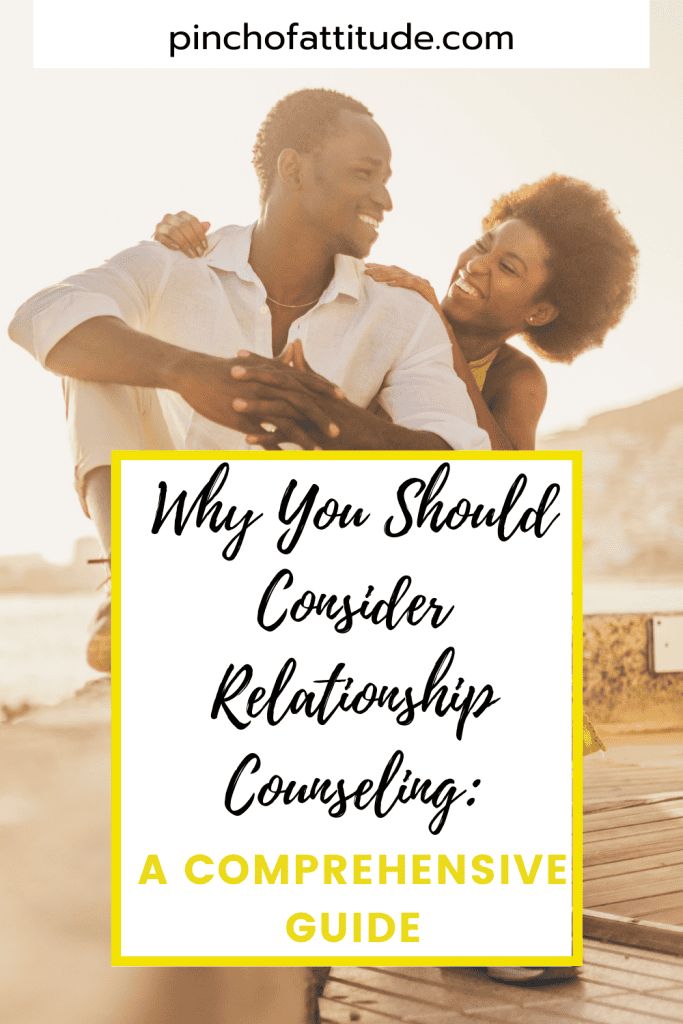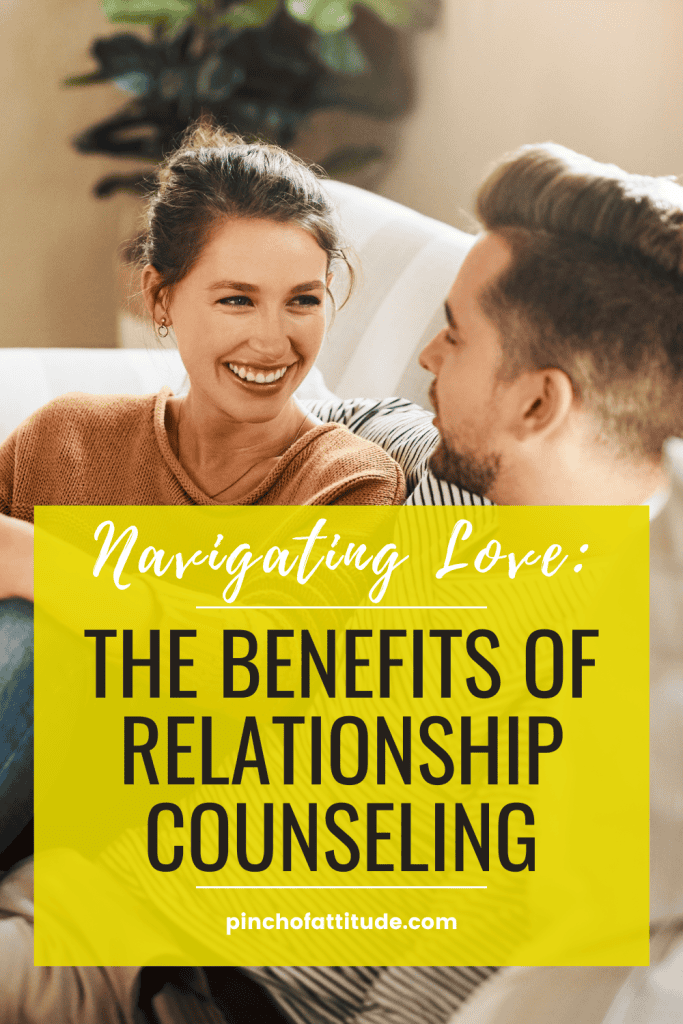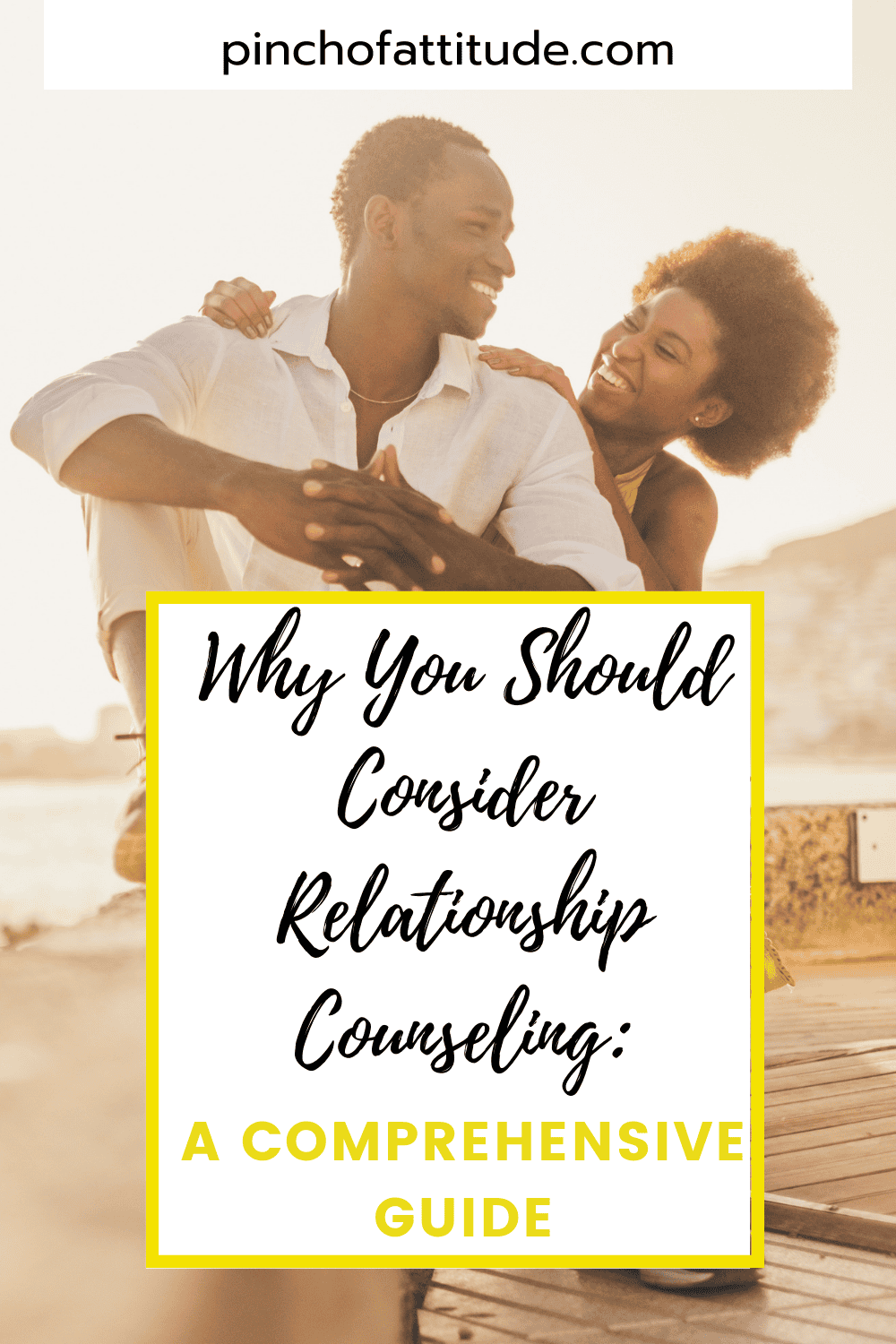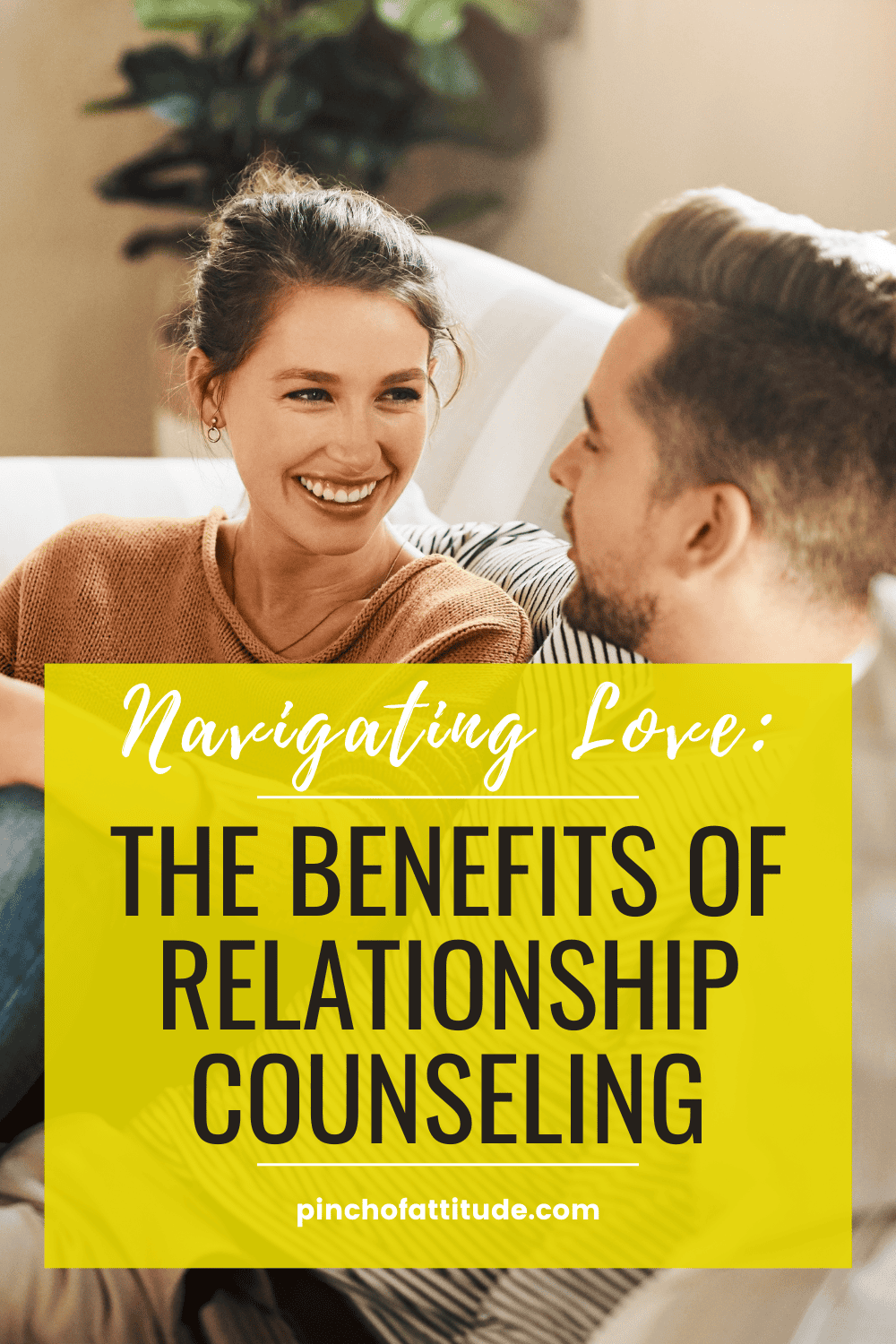When you find the person you love, you’re on cloud nine. You look at them with rose-colored glasses and imagine your future together in the same positive light.
After you’ve been together for a while, you will learn that your initial thoughts at the beginning of the relationship might have been a little idealistic. That’s ok!
Almost everyone learns the truth about relationships the hard way, and that truth is that relationships are work and have low moments.
When you are going through a low moment in your relationship, it can feel like the end of the world. You rely on your partner for support and when they’re not there, it’s heartbreaking.
However, a low point in your relationship doesn’t necessarily mean the end of your relationship. In fact, you should probably fight for your relationship if you’ve been together for a long time or have children together.
How can you stay together? One of the things you and your partner can do to work on your relationship and try to stay together is to get help from a trained professional. If it’s something you’re considering or just want to learn more about it, here’s everything you need to know about relationship counseling.
Table of Contents
What is Relationship Counseling?

Relationship counseling is exactly what it sounds like. It’s counseling with a trained professional who has the experience and knowledge to help you. It focuses on relationship topics, particularly those that are currently affecting you and your partner. It generally involves talking, exercises, and even homework.
You can go regularly or as needed or even do it online. While you may get counseling as a couple, it’s perfectly fine to see a relationship counselor as an individual too. A helpful way to talk about relationship counseling is to talk about what it is NOT.
It is not a place where one person is blamed for everything in the relationship. It is also not a last-ditch effort before a breakup or a divorce. It is a place where you can talk about your feelings and the difficulties you face. It is also a place to learn how to make changes that will positively impact your relationship.
10 Signs You Need Relationship Counseling

All couples have difficult moments. How do you know if your relationship has gotten to the point that you need counseling? Well, most couples could use some help. However, some couples need more help than others.
Here are 10 signs that you should seriously consider hiring a relationship counselor.
1. Infidelity
When you or your partner cheats, that is going to put a huge strain on your relationship. It can cause trust issues, and it can take the betrayed party a long time to get over what happened.
A relationship counselor can help the betrayed party heal and turn any negative feelings into something more constructive.
There are a number of reasons that people might end up having an affair. They may feel unappreciated, unfulfilled sexually, or simply have a broken moral compass among several other possible causes.
A relationship counselor can help you determine why someone might have cheated. Understanding and addressing the cause can prevent cheating in the future. Even if you or your partner have only thought about cheating, it’s still a sign of a problem.
There’s a big difference between fantasizing and actually thinking of cheating. If you know you have crossed a line, it’s a good idea to get help to stop something before it happens.
Cheating doesn’t have to mean that you have to actually be physical with another person. Turning to another person for the emotional support you should get from your partner is another way of cheating that needs to be addressed.
You may be able to figure out what you’re getting from that relationship you’re not getting from your significant other. They may be able to learn how to give you the support you need so that you can receive that support from them, helping you become closer.
2. Constant Fighting and Bickering
Every couple fights. It’s a part of being in a relationship. However, there are times when it gets to an unhealthy point.
Are the fights occurring more and more often? Are they getting worse? Are you fighting about the same things over and over again? Has the fighting been going on for a long time?
If the answer to these questions is yes, you need to have a third party help you end the excessive fighting. It’s not healthy.
It’s great that you are able to communicate with each other. However, screaming and hitting below the belt can be just as bad, if not worse, as not speaking at all.
A relationship counselor can help you keep the conversation respectful. When you speak in a more respectful tone, it will be easier to come to common ground.
When things escalate to an unhealthy level, it’s important to have clear boundaries.
It’s inappropriate for you and your significant other to fight in front of children or other people. It’s also completely unacceptable when things get violent. These things cannot be tolerated, and you need to leave these situations immediately.
If you need help because you are in an abusive situation, get help before it’s too late.
3. No Communication
Every successful relationship talks about their problems. Communicating is a key part of understanding how each other is feeling.
When you know how someone feels, you can make adjustments to fix things before they become a problem.
Alternatively, if you never talk, it’s a serious problem. Your partner might not know exactly how you are feeling. It’s dangerous to hold your feelings inside. When they do come out, it may not be in the most constructive way.
In fact, some people bottle things up to the point where they explode. The explosion can cause a serious problem in the relationship.
Some people simply aren’t used to expressing themselves. An introverted person may not be able to explain things to their partner. This can make the other party feel closed out.
Everyone wants to be in their significant other’s head. Counseling can force your partner to express themselves, answering questions the other party might have had.
4. Sexual Disconnect
A couple needs to have great sex. After all, this is the person you will be having sex with for the rest of your life. If you and your partner aren’t experiencing the fireworks in the bedroom that you once did, it’s time to get help.
One bad night doesn’t mean it’s time to get help. However, it’s clear there’s a real problem when one bad night turns into a bad couple of months or (gasp) years.
Another sign of a serious problem in the bedroom is if someone withholds sex as punishment. Sex should be about passion- not used as a tool to condition your partner.
Sex is a form of communicating with your partner. It’s only that you are communicating with your body instead of words. A lack of sexual connection demonstrates a lack of communication between you and your partner.
A relationship counselor can help bring you together again sexually by giving you a safe place to talk about such a sensitive topic.
5. Major Life Trauma
Life is filled with amazing, incredible highs. Unfortunately, it is also filled with moments of complete devastation: death, severe illness or injury, and getting fired just to name a few. When you hit these low moments, it can affect you as a person. In turn, it can affect your relationship.
Sometimes relationships grow in the face of trauma. More often, they are challenged. Don’t let a trauma cause another tragedy in your life.
When you find yourself acting out toward your significant other after a tragedy, get a therapist to help you keep your emotions under control. They may also be able to help you deal with the trauma individually or refer you to someone who can. It doesn’t need to be a devastating event to affect your relationship.
Serious life changes such as a new child or a new job can also cause a serious strain on your relationship. Learn how to deal with challenges while still tending to your partner.
6. You or Your Partner Have a Drug or Alcohol Problem
We have all had a drink too many and embarrassed ourselves. Many people have done it more than once. When this starts to be a serious problem, it’s going to put a serious strain on your relationship.
The person with an addiction problem is clearly facing some serious personal demons. This means they aren’t able to give their significant other the time and attention they deserve. Furthermore, they are in a precarious position in life that can affect their job, other relationships, and even their freedom. This is scary to the other person.
A person should feel secure in the relationship. Addiction causes uncertainty. It can also cause some serious resentment and trust issues. Whether you or your partner are still facing a substance abuse problem or it’s in the past, a counselor can help both of you face the problem head-on.
7. Not Moving at The Same Pace

Most people enter a relationship with the eventual goal of walking down the aisle and having kids. Learning that your partner has a similar goal is a heartwarming moment. You may even start to plan the future right away- before your significant other planned on it.
There are two timing problems in relationships: someone moving far too fast or someone not moving fast enough (or at all). Both can be extremely frustrating.
Considering it’s such a serious topic, not moving at the same speed can make someone question the entire relationship. You may start to wonder if the person really wants to be with you or if you will ever get married. On the other end, the pressure can be overwhelming and push it off even further. One person may need to slow down a bit while the other person may need to show some sort of proof of their intentions.
A relationship counselor can help give both parties advice on how to come to common ground. They can also look at the underlying reasons a person might be moving too quickly or avoiding commitment and help you resolve the issue once and for all.
8. Friends and Family Influence
The other people in our lives generally have our best intentions in mind. However, their good intentions can cause them to interfere in your relationship in a way that only causes a problem. It’s very important to be careful about who you talk to and what you tell them. Keep your circle small and don’t divulge everything.
When you speak to people about your relationship, there’s a good chance it will come back to your partner. This will only make your significant other hate that person and feel uncomfortable being around them. You may even get caught in the middle. Is a night of venting really worth that?
Finally, be very careful about your interactions on social media. Posting risqué pictures, sharing flirty interactions, or exposing your dirty laundry can not only embarrass you as a couple but also divide you further.
9. To Make Sure You’re Ready for Marriage
It’s a dream come true: you and your partner have agreed to get married! Congratulations!
As many couples are sure to tell you, marriage may be more challenging than you expect at this moment. To ensure that you’re ready to take the plunge, many people get professional help.
You don’t necessarily need to have a bad relationship to go to counseling. Sometimes you might just need someone else to talk about the future of your relationship in a setting that allows you to cover the hard things. This is also beneficial later in your relationship when things aren’t so great and you need a counselor.
10. Your Significant Other Requests it
We all have to do things for our partner that we don’t want to do. It could be watching a movie you don’t like, spending time with their relatives, or even a couple’s counseling.
The bottom line is that if your significant other tells you that they want to go to counseling, you should do it for them. It shows them that you are willing to step outside of your comfort zone in order to make them happy. It also shows them that you are serious about your relationship and will take steps to work on it and gives your partner the opportunity to say what they need to say.
You may not think you need counseling, but your partner might benefit greatly from it. That’s worth it, right?
What You Can Expect in Relationship Counseling

The first thing to expect in relationship counseling is a lot of talking. You’ll talk about your feelings quite a bit. You’ll also go through a lot of different exercises. You might try to put yourself in your partner’s place and imagine their feelings.
If you sign up for it as a couple, you’ll also do a lot of listening. Your partner will talk about how they feel, and you will be expected to listen. You’ll also have to listen to your relationship counselor’s advice and evaluation.
The last thing to expect is homework. You thought you were done with that, right? Well, your counselor may give you homework to help you become closer to your significant other. Be sure to do your homework if you want to show that you’re taking the experience seriously!
Why Relationship Counseling Will Help You
You may be amazed to find out how much a couple’s counseling can help you in your relationship. Here are just some of the benefits:
Forces You to Talk About Your Problems
Many couples have problems in their relationship but they never talk about it.
During the sessions, you can’t really avoid talking about the issues you have with your significant other. This forces you to open up and express yourself about things you wouldn’t normally talk about.
You’d be amazed at how helpful expressing yourself can be. It will help you and your partner understand where each of you is at and then act accordingly.
A Person Can Help You Communicate With Your Partner
Some couples communicate plenty but in the wrong way. Yelling, screaming, cutting each other off, and not listening are not effective ways to speak to each other.
Unfortunately, when emotions are high, our communication skills go way down. A relationship counselor can guide you on how to keep the conversation at a calm level. They can even give you tools to use in future arguments to help keep the conversation in a respectful tone.
When the conversation is calm, you and your partner may be able to hear each other better and come to an understanding.
Offer a Neutral Perspective
Some people are just completely wrong in an argument. However, they probably don’t see how wrong they are.
When you talk about your arguments to a relationship counselor, they can tell you when you’re completely wrong or out of line. Hearing this from a third party can help you see how your position may be wrong.
It’s Effective
Some people seem to think that the moment you get to a couple’s counseling, the relationship is already over. This couldn’t be further from the truth.
Obviously, relationship counseling can’t help all couples. However, it has a success rate of about 50%. Those are pretty good odds, and it’s definitely worth trying.
Shows Your Commitment to the Relationship
The very act of going to counseling demonstrates that you want to put effort into the relationship. At the very least, you are willing to give it a try.
Once you put in the effort into relationship counseling, it can help you put more effort into other areas of your relationship, too. It’s the first step.
How to Get the Most From Relationship Counseling

To get the most from your counseling sessions, you need to be open to them.
So many people go into counseling with a negative attitude, and it’s very clear that they aren’t interested. If you’re going to go, you may as well take advantage of the experience. Be open-minded.
One of the things a relationship counselor may ask you to do that may make you uncomfortable is to talk about your feelings. If you’re not open, you won’t get very much from the experience. While still being delicate, be open and honest about your feelings so that you can work through your problems.
Relationship Counseling vs Relationship Coaching
There are two main types of couples counseling: coaching and counseling. Some people refer to counseling as therapy which is essentially the same.
A relationship coach emphasizes the future while a relationship counselor focuses on the past.
Another way to look at it is that during relationship coaching sessions, you will talk about your current situation and make changes to get the result you want in the future.
In counseling sessions, you will talk about problems in the past and how to heal in the present.
Coaching is ideal for couples about to get married who want advice on how to have a great relationship. It’s also great for those who are still in the dating stage and just want some advice or to make sure their relationship moves forward smoothly.
Counseling is for couples fighting through past infidelity, trauma, depression, or addiction.
Related Posts:




